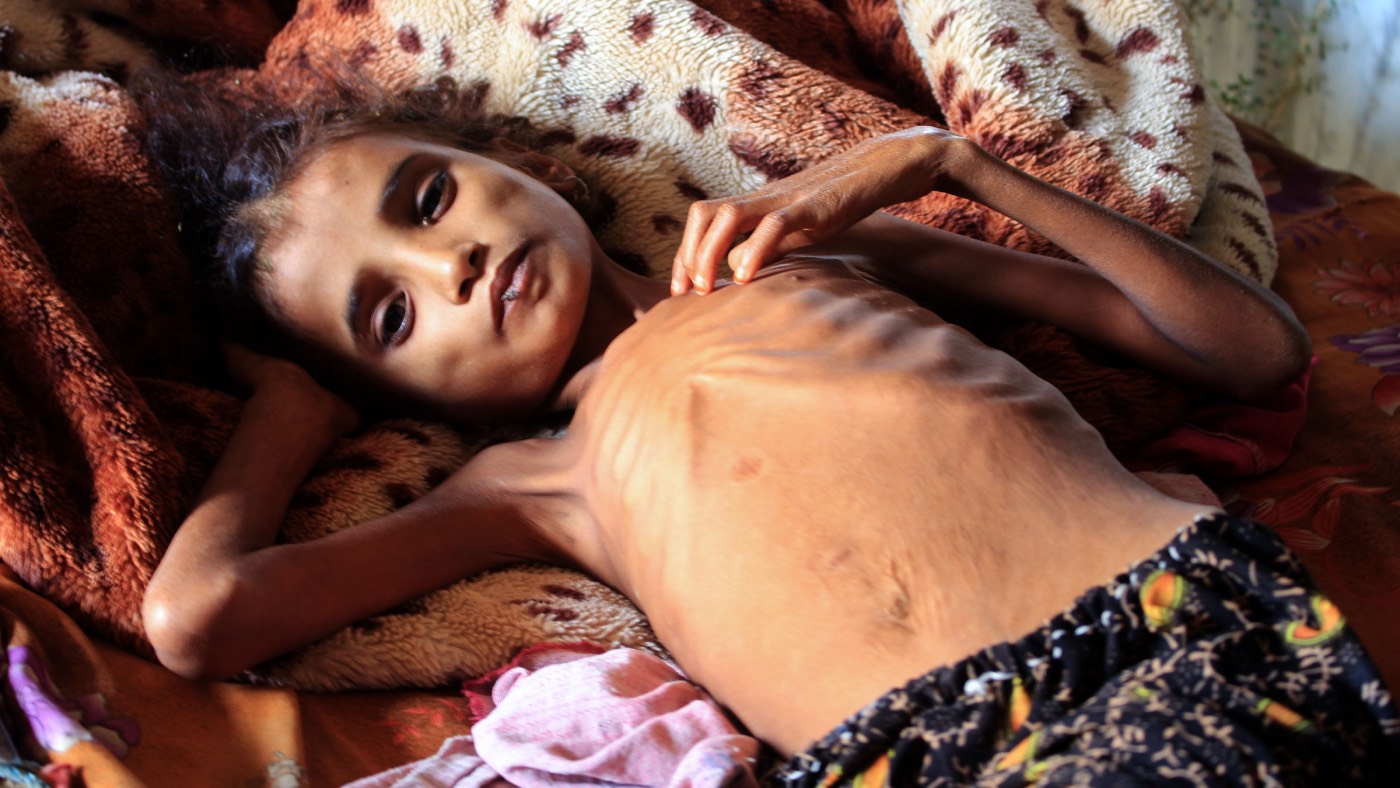Government criticised for cutting aid to ‘poverty superpower’ Yemen
Ministers blame Covid cost pressures for decision to more than halve funding to war-torn country

A free daily email with the biggest news stories of the day – and the best features from TheWeek.com
You are now subscribed
Your newsletter sign-up was successful
The British government is imposing a “death sentence” on Yemen by drastically cutting UK aid to the poverty-stricken country, the United Nations secretary general has warned.
Announcing that the UK would provide “at least” £87m ($120m) to Yemen this year - down from £214m in 2020 - Foreign Office minister James Cleverly told a virtual UN pledging conference yesterday that the Covid-19 pandemic has created “a difficult financial context for us all”.
But the move was met with fury from the intergovernmental organisation’s chief, Antonio Guterres, and other officials, “who warned that if the UN failed to meet its $3.85bn target for 2021, millions of Yemenis could face starvation”, the BBC reports.
The Week
Escape your echo chamber. Get the facts behind the news, plus analysis from multiple perspectives.

Sign up for The Week's Free Newsletters
From our morning news briefing to a weekly Good News Newsletter, get the best of The Week delivered directly to your inbox.
From our morning news briefing to a weekly Good News Newsletter, get the best of The Week delivered directly to your inbox.
Following more than six years of conflict that has claimed the lives of more than 18,400 civilians, the situation in Yemen represents “the world’s worst humanitarian crisis”, says Human Rights Watch. An estimated 20 million people - two-thirds of the population - depend on humanitarian assistance.
The decision to cut UK aid to the impoverished country has also been criticised by Conservative MPs.
Former international development secretary Andrew Mitchell told Channel 4 News last night that it was “a very dark day for a country which has been a poverty superpower”.
He continued: “To cut aid to Yemen, the poorest country by miles in the Middle East, in the middle of a pandemic when we know there are famine conditions and famine is stalking the land.”
A free daily email with the biggest news stories of the day – and the best features from TheWeek.com
Former foreign secretary Jeremy Hunt joined the chorus of criticism, tweeting that the “timing is inexplicable with the UN warning only last week that Yemen faces the worst famine the world has seen for decades”.
Meanwhile, Labour has issued a statement in which shadow international development secretary Preet Kaur Gill said that the cut was “appalling” and “callous,” and “highlights a blatant disregard by this government to fulfil its moral duty”.
News of the aid cut comes weeks after The Guardian revealed that British officials authorised the export of almost £1.4bn of weapons to Saudi Arabia between July and September. Campaigners said the weapons could be used in the war in Yemen and accused ministers of “putting profit before lives”.
Chas Newkey-Burden has been part of The Week Digital team for more than a decade and a journalist for 25 years, starting out on the irreverent football weekly 90 Minutes, before moving to lifestyle magazines Loaded and Attitude. He was a columnist for The Big Issue and landed a world exclusive with David Beckham that became the weekly magazine’s bestselling issue. He now writes regularly for The Guardian, The Telegraph, The Independent, Metro, FourFourTwo and the i new site. He is also the author of a number of non-fiction books.